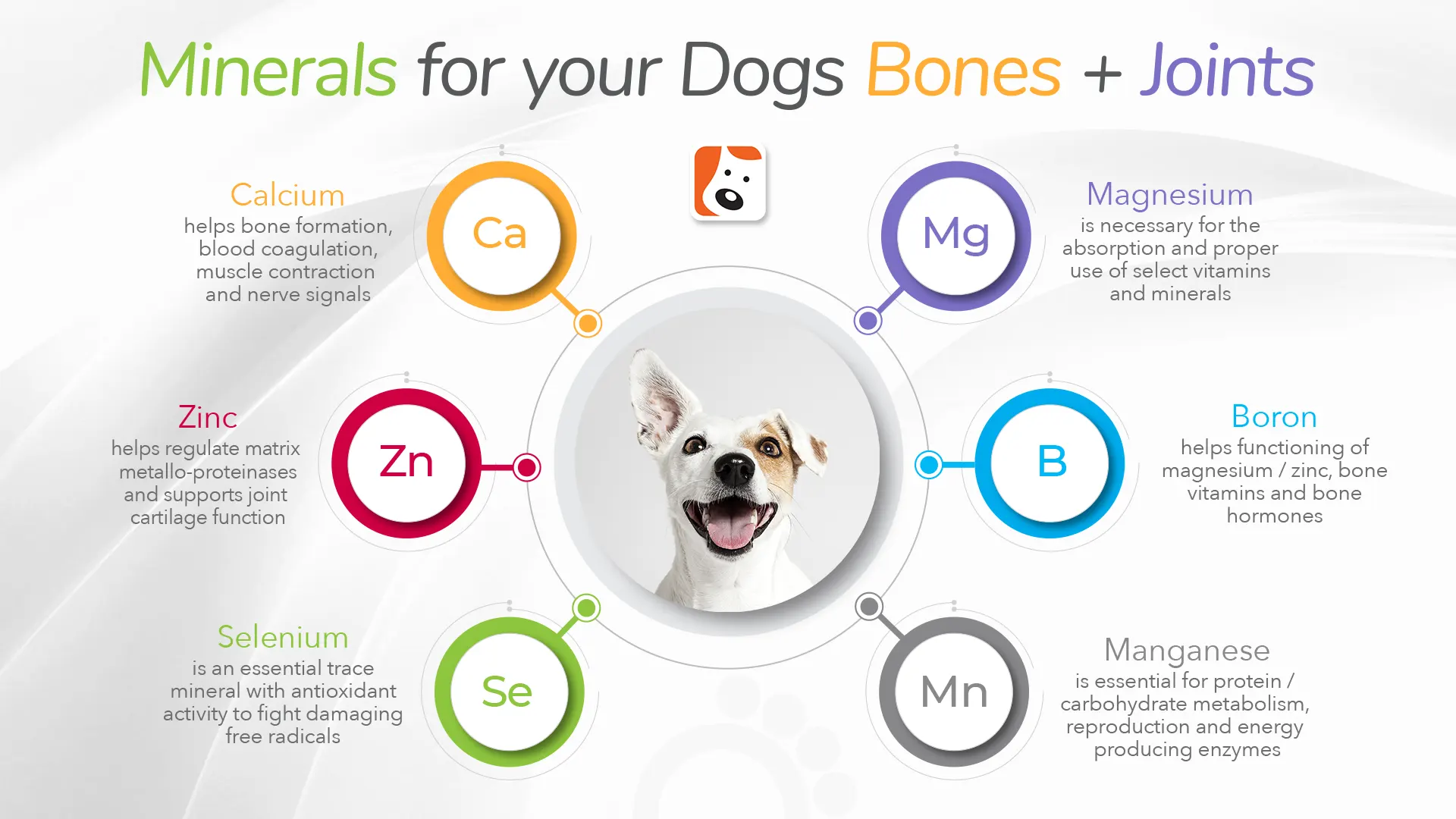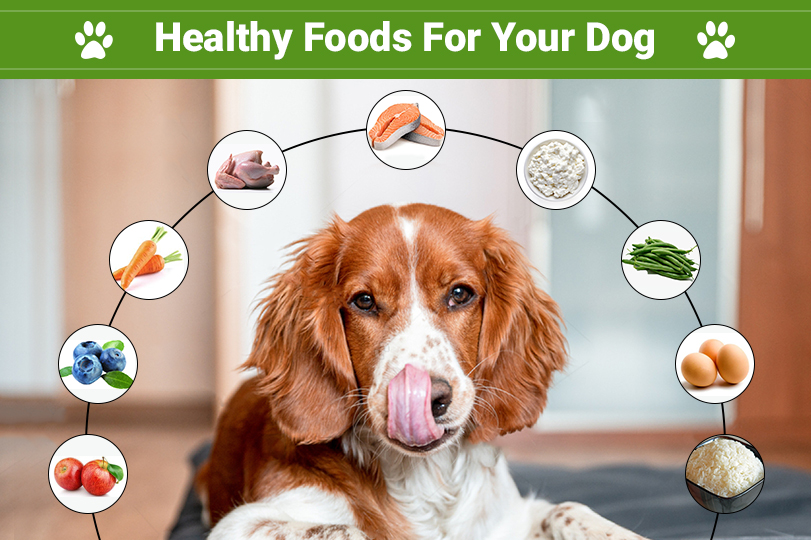“Proper nutrition is the foundation of good health for both humans and animals.” – Dr. Karen Becker
When it comes to ensuring the health and vitality of our canine companions, the food they consume plays a pivotal role. Just like humans, dogs require a balanced diet rich in essential nutrients to maintain optimal health and well-being. This blog delves into the intricacies of the best dog foods, focusing on the crucial role of vitamins and minerals for a healthy canine. From understanding their importance to identifying the best sources, we aim to provide a comprehensive guide for dog owners committed to their pets’ health.
The Importance of Nutrients in Canine Diets
Dogs, much like their human counterparts, thrive on a diet that provides all the necessary nutrients. A lack of essential vitamins and minerals can lead to a host of health problems, ranging from poor coat quality to severe organ dysfunction. According to the American Kennel Club, a well-balanced diet is essential for maintaining your dog’s energy levels, supporting their immune system, and promoting overall longevity. Therefore, understanding the role of these nutrients and ensuring they are present in your dog’s food is paramount.
The Role of Vitamins in Dog Health
Vitamins are organic compounds that dogs need in small quantities for various metabolic processes. Here are some of the most crucial vitamins for dogs:

- Vitamin A: Vital for vision, immune function, and cell growth. It also plays a crucial role in maintaining healthy skin and coat.
- Vitamin D: Essential for calcium absorption and bone health. Dogs synthesize Vitamin D from sunlight, but dietary sources are also important.
- Vitamin E: Acts as an antioxidant, protecting cells from damage. It supports skin health and immune function.
- Vitamin K: Necessary for blood clotting and bone health.
- B-complex Vitamins: These include B1 (Thiamine), B2 (Riboflavin), B3 (Niacin), B5 (Pantothenic Acid), B6 (Pyridoxine), B7 (Biotin), B9 (Folic Acid), and B12 (Cobalamin). Each plays a role in energy metabolism, red blood cell production, and nervous system health.
- Vitamin C: Dogs can synthesize Vitamin C, but additional amounts can boost the immune system and act as an antioxidant.
Essential Minerals for a Healthy Canine
Minerals are inorganic elements that also play significant roles in maintaining various bodily functions. Key minerals include:

- Calcium: Crucial for bone and teeth formation, muscle function, and nerve signaling.
- Phosphorus: Works closely with calcium to build bones and teeth. It is also involved in energy production.
- Magnesium: Important for muscle and nerve function, as well as energy production.
- Potassium: Maintains fluid balance, muscle contractions, and nerve signals.
- Sodium and Chloride: Together, these electrolytes manage fluid balance, nerve function, and muscle contractions.
- Iron: Essential for the production of hemoglobin and red blood cells, which carry oxygen throughout the body.
- Zinc: Supports the immune system, skin health, and wound healing.
- Copper: Necessary for iron absorption and the formation of red blood cells.
- Selenium: Functions as an antioxidant, supporting the immune system and preventing cellular damage.
Selecting the Best Dog Foods
Choosing the right dog food is not just about convenience or cost; it’s about providing your pet with the nutrients they need to thrive. Here are some key considerations and recommendations for selecting the best dog foods, with a focus on ensuring they provide adequate vitamins and minerals for a healthy canine.
Evaluating Commercial Dog Foods
When selecting commercial dog foods, it’s essential to read the labels carefully. Look for foods that are labeled as “complete and balanced” by a recognized authority, such as the Association of American Feed Control Officials (AAFCO). This designation means the food meets established nutritional standards.
Key Ingredients to Look For
- High-Quality Protein Sources: Ensure the first ingredient is a named meat source (e.g., chicken, beef, lamb). Protein is vital for muscle maintenance and repair.
- Whole Grains and Vegetables: These provide essential vitamins and minerals, as well as fiber for healthy digestion.
- Healthy Fats: Look for sources of Omega-3 and Omega-6 fatty acids, such as fish oil or flaxseed oil, which support skin and coat health.
- Avoid Fillers and Artificial Additives: Avoid foods with excessive fillers like corn and soy, as well as artificial colors, flavors, and preservatives.
The Role of Vitamins and Minerals in Dog Foods
Ensuring your dog’s food contains adequate vitamins and minerals is crucial. Here’s how these nutrients support your dog’s health:

- Bone Health: Calcium and phosphorus are fundamental for bone development and maintenance. Vitamin D helps with the absorption of calcium.
- Immune Support: Vitamins A, C, and E, along with zinc and selenium, play critical roles in maintaining a strong immune system.
- Skin and Coat: A healthy coat and skin are indicators of overall health. Vitamins A and E, along with biotin and omega fatty acids, are essential for maintaining skin integrity and a glossy coat.
- Energy and Metabolism: B-vitamins are crucial for energy metabolism, ensuring your dog has the vitality they need for daily activities.
Homemade Dog Food: Balancing Nutrients
Some pet owners prefer to prepare homemade meals for their dogs, believing it allows for better control over ingredient quality. While this can be true, it’s essential to ensure the meals are nutritionally balanced. Here are some tips for making homemade dog food:

- Consult a Veterinarian or Canine Nutritionist: Before starting, get professional advice to ensure your homemade recipes meet all nutritional requirements.
- Use a Variety of Ingredients: Include different protein sources, grains, and vegetables to cover a broad spectrum of vitamins and minerals.
- Consider Supplements: Sometimes, it’s challenging to meet all nutritional needs with food alone. Supplements can help provide essential vitamins and minerals.
Special Dietary Needs
Different dogs have unique dietary needs based on their age, size, breed, and health conditions. For instance, puppies require more protein and fat for growth, while senior dogs might need fewer calories but more fiber.
- Puppies: Need diets rich in protein, fat, calcium, and phosphorus to support rapid growth and development.
- Adult Dogs: Require balanced maintenance diets that support daily activity and health.
- Senior Dogs: Might benefit from diets with added joint support (like glucosamine) and higher fiber for digestive health.
- Dogs with Health Issues: Specific health problems, such as kidney disease or food allergies, may require specialized diets. Always consult a vet for tailored dietary recommendations.
Conclusion: Investing in Your Dog’s Health
Choosing the best dog food is an investment in your pet’s long-term health and happiness. A diet rich in essential vitamins and minerals for a healthy canine is foundational to ensuring they live a vibrant, active life. By understanding the importance of these nutrients and making informed choices, you can significantly impact your dog’s quality of life.
From selecting high-quality commercial foods to preparing balanced homemade meals, the focus should always be on providing comprehensive nutrition. Remember, the effort you put into your dog’s diet today will pay dividends in their health and happiness for years to come.
Let’s make informed, thoughtful choices to keep our beloved canine companions healthy, active, and joyful. Your dog deserves nothing but the best!





















